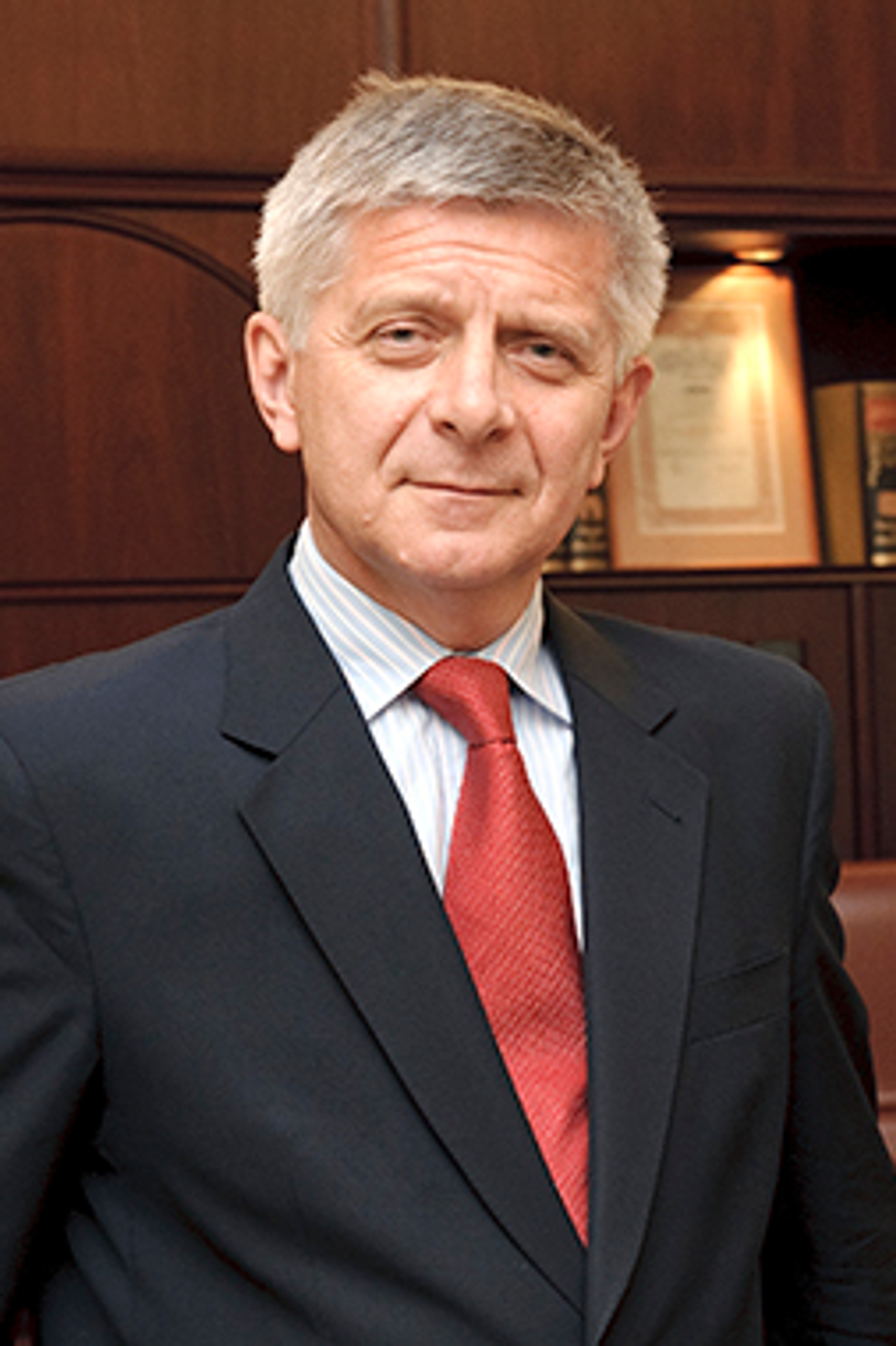Marek Belka

Marek Belka was born on 9 January 1952 in Łódź.
Having completed economic studies at the University of Łódź in 1972, he worked in the Institute of Economics of this university. In 1978, he earned a PhD degree and in 1986 –a post doctoral degree in economics (“habilitation”). Since 1986, he has been associated with the Polish Academy of Sciences. In 1978-1979 and 1985-1986, he was a research fellow at Columbia University and the University of Chicago, and in 1990 at the London School of Economics. He received the title of Professor of Economics in 1994.
Since the 1990s, Marek Belka has held important public positions both in Poland and abroad. In 1990, he became consultant and adviser at the Ministry of Finance, then at the Ministry of Ownership Transformations and the Central Planning Office. In 1996, he became consultant to the World Bank. In 1994-1996, he was Vice-Chairman of the Council of Socio-Economic Strategy at the Council of Ministers, and later economic adviser to the President of the Republic of Poland.
He served as Deputy Prime Minister and Minister of Finance on two occasions: in 1997, in the government of Włodzimierz Cimoszewicz and in 2001-2002, in the government of Leszek Miller. In 2004-2005, he was Prime Minister of Poland’s Government.
Since 2006, Marek Belka worked in the United Nations as Executive Secretary of Economic Commission for Europe (UNECE), and since January 2009 as Director of European Department at the International Monetary Fund. Before that, he served as Chairman of the Council for International Coordination for Iraq (2003), and as Director of Economic Policy in the Coalition Provisional Authority, where he was responsible, among others, for the currency reform, the development of a new banking system and supervision of the economy (2003-2004).
He has published more than 100 scientific papers devoted primarily to the theory of money and anti-inflation policy in developing countries. He specializes in applied economics and contemporary economic thought. He is a member of the Committee on Economic Sciences of the Polish Academy of Sciences.
On 10 June 2010, Prof. Marek Belka was approved by the Sejm of the Republic of Poland as the President of the National Bank of Poland. He assumed the office on 11 June 2010 after having been sworn in by the Sejm.
Belka was previously a member of the Council for the Future of Europe and The WorldPost Advisory Council.